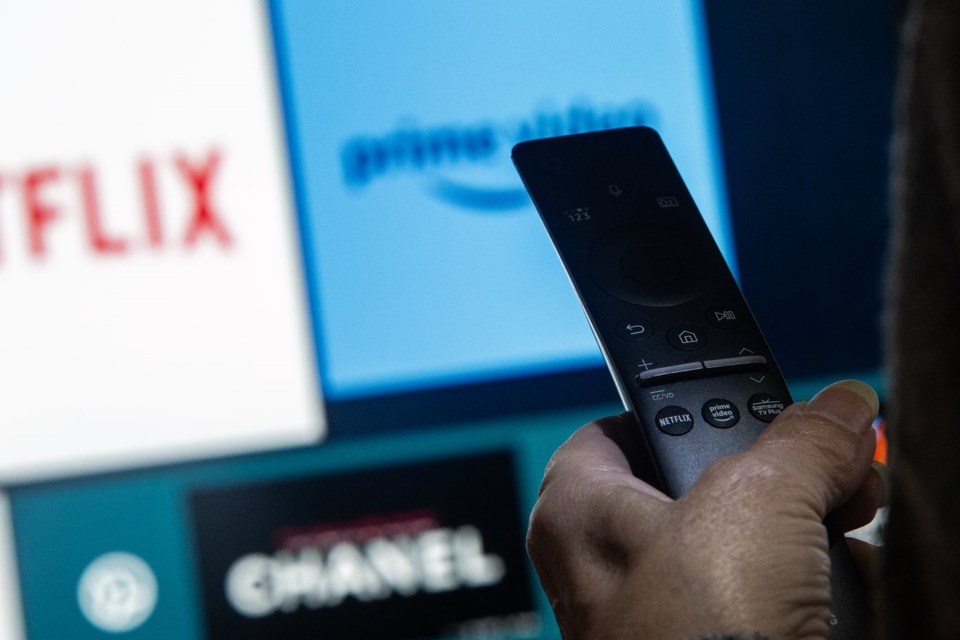OTTAWA — A group representing big foreign streamers told a CRTC hearing Friday that those companies shouldn't be expected to fulfil the same responsibilities as traditional broadcasters when it comes to Canadian content.
The Motion Picture Association-Canada, which represents large streaming companies such as Netflix, Paramount, Disney and Amazon, said the CRTC should be flexible in modernizing its definition of Canadian content.
The regulator is holding a two-week hearing on a new definition of Canadian content. The proceeding is part of its work to implement the Online Streaming Act – and it is bringing tensions between traditional players and large foreign streamers out in the open.
It's also happening in the context of trade conflict with the United States. U.S. business groups and tech companies have warned the CRTC's efforts to change CanCon rules could worsen trade relations. Netflix, Paramount and Apple pulled out of the CRTC hearing on the first day.
MPA-Canada argued Friday the Online Streaming Act, which updated broadcasting laws to capture online platforms, sets a lower standard for foreign online services.
"The contribution standard applied to Canadian broadcasters is much greater and reflects their existing obligations," the group said in their opening remarks.
"This difference was intentional as Parliament rejected calls to impose the same standard because 'it is just not realistic' to expect foreign online undertakings operating in a global market to contribute in the same way as Canadian broadcasters."
While the hearing is focused on the definition of Canadian content, the CRTC has also heard debate about financial contributions.
Earlier Friday, Corus urged the CRTC to require traditional broadcasters and online players to pay the same amount into the Canadian content system. The broadcaster, which owns Global TV, said both should contribute 20 per cent of their revenue toward Canadian content.
Currently, large English-language broadcasters must contribute 30 per cent of revenues to Canadian programming, and the CRTC last year ordered streaming services to pay five per cent of their annual Canadian revenues to a fund devoted to producing Canadian content.
Foreign streaming services are fighting that rule in court. MPA-Canada is specifically challenging the portion of the contribution that is directed to local news, though Apple, Amazon and Spotify asked for and were granted a pause on their entire payments until the court process plays out.
MPA-Canada argued Friday online services "should be allowed to fulfil their obligations through direct spending on production where that is consistent with their business model – not forced to pay into funds or into a program acquisition model that is inconsistent with how their services operate."
The big streamers have previously pointed to their existing spending in Canada in response to calls to bring them into the regulated system. But on Friday, MPA-Canada president Wendy Noss said that level of spending shouldn't be made mandatory through regulations.
"With respect, right now the services are unregulated. So ... any investments that they're making in Canada, they're making by virtue of business decisions that make sense for their individual services," she told commissioners.
Earlier this month, U.S. President Donald Trump took aim at film productions made outside of the United States, threatening to hit them with a 100-per-cent tariff.
The CRTC has issued a preliminary position on the definition of Canadian content, suggesting it keep the current system for determining whether content is considered Canadian by awarding points when Canadians occupy key creative positions in a production.
The regulator is considering expanding that system to allow more creative positions to count toward the total points. One of the topics of debate in the hearing is the position of "showrunner," which has become more significant in recent years.
MPA-Canada said that "adding just a few positions to a more than 40-year-old list ignores today’s modern production landscape."
It argued the CRTC shouldn't impose "any mandatory positions, functions, or elements of a 'Canadian Program'" on global streaming services.
Noss told commissioners the "existing framework was set up for Canadian broadcasters who only made content in Canada, and only showcased that content in Canada, and that is just fundamentally different than the kind of high quality, international framework for those who are running global services."
This report by The Canadian Press was first published May 16, 2025.
Anja Karadeglija, The Canadian Press



